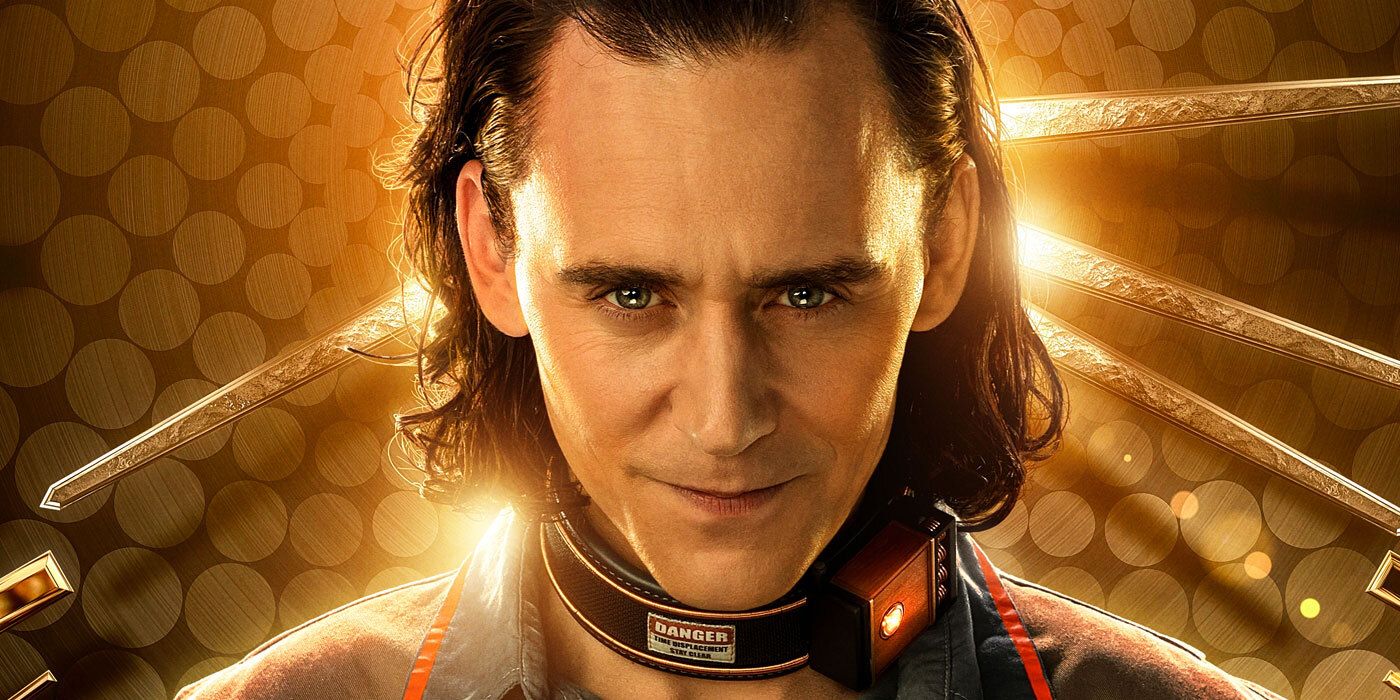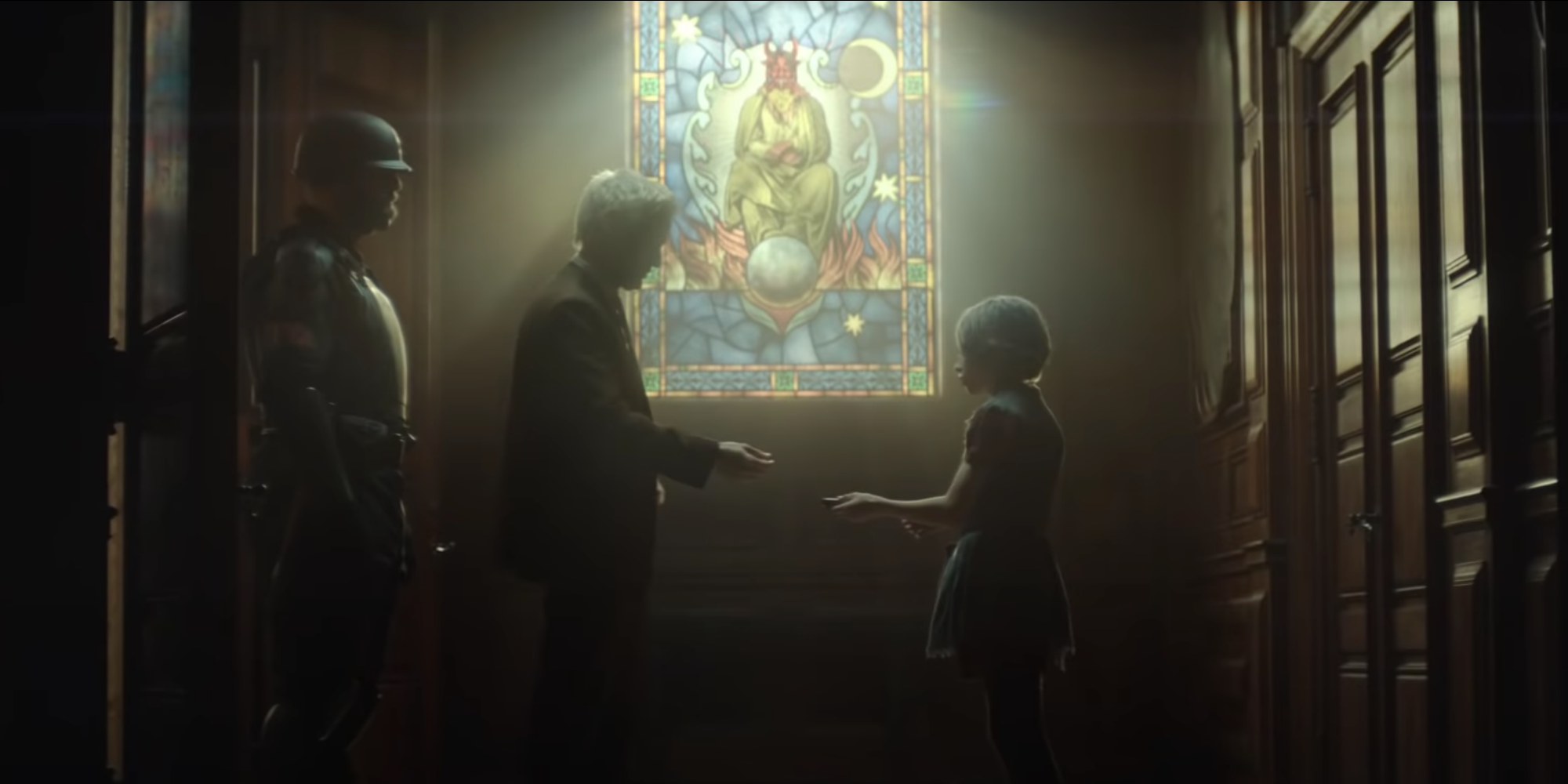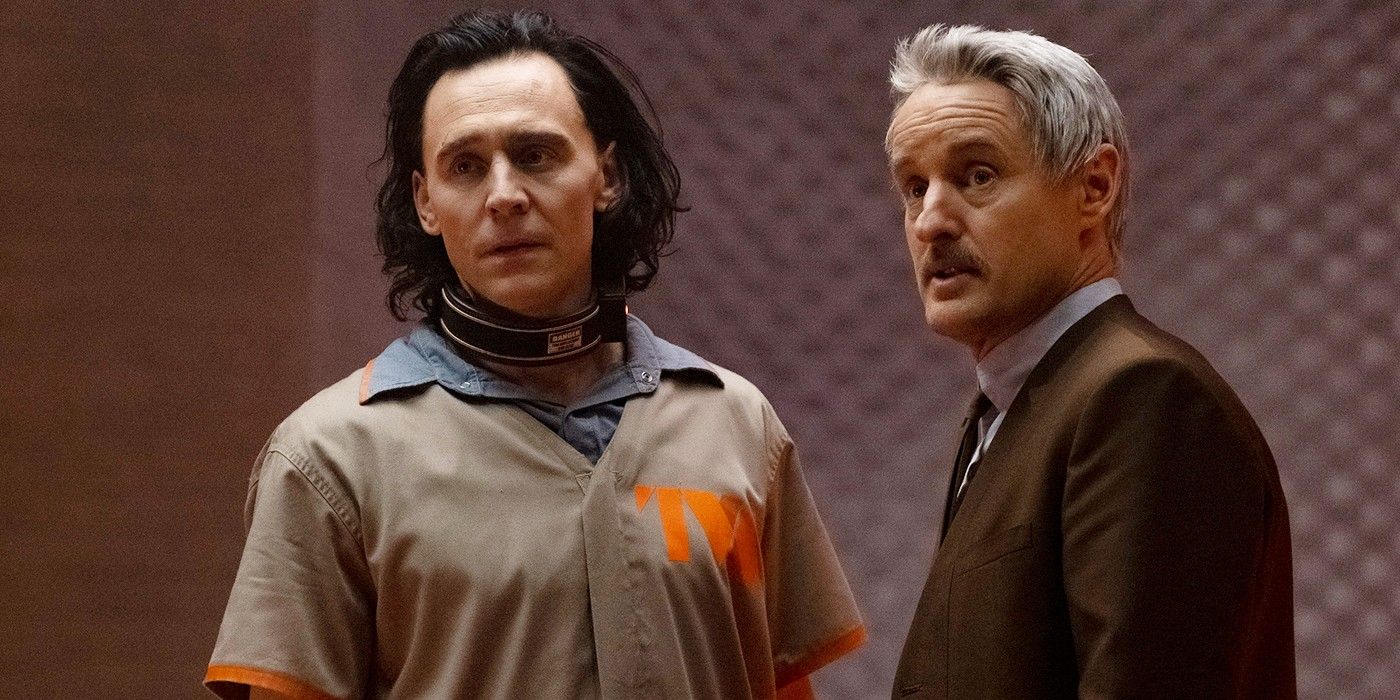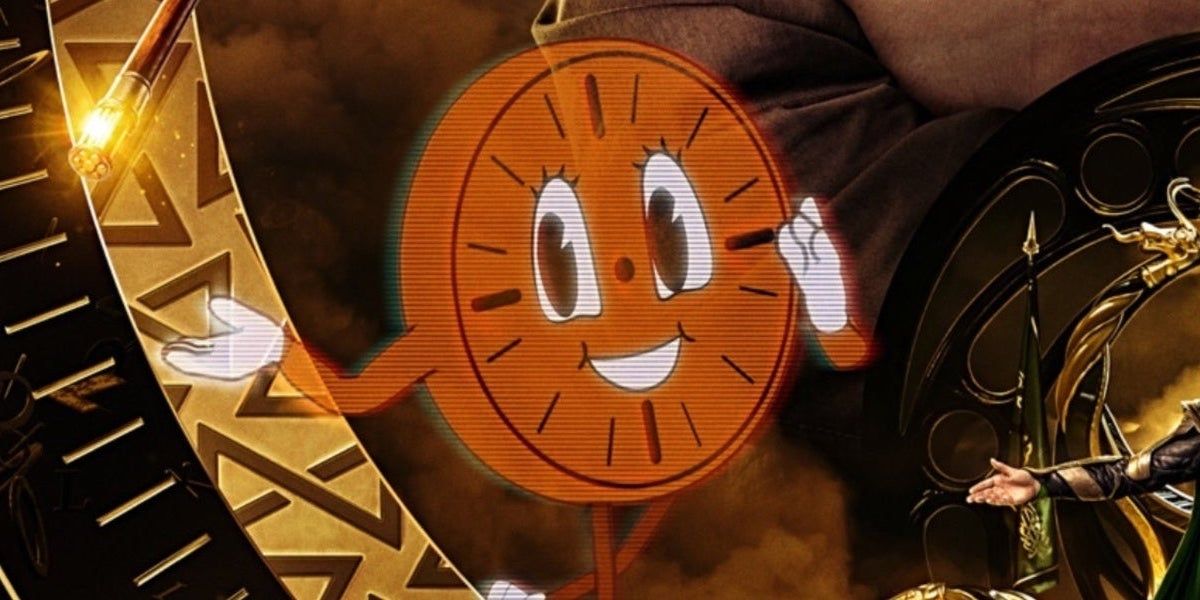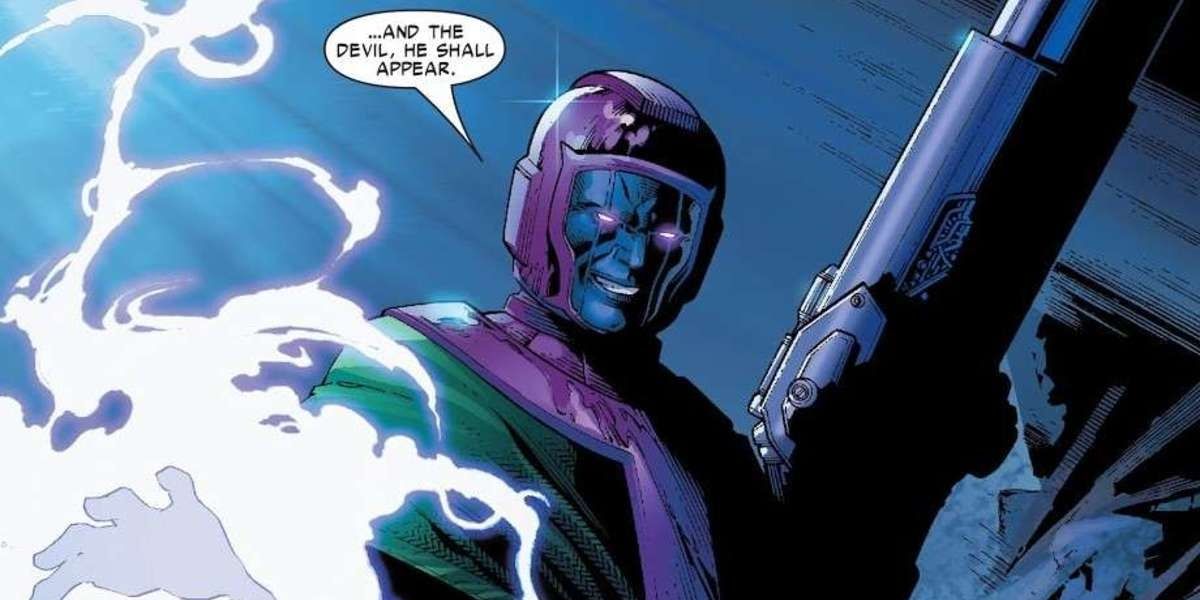WARNING: The following contains spoilers for Loki Episode 1, "Glorious Purpose," now streaming on Disney+.
Loki -- with its shape-shifting lead character, multiple timelines and procedural storytelling device -- is practically designed for fan theorizing. Only one episode has aired, but viewers are already hypothesizing about who is who and how everything will play out in the latest must-see Marvel Cinematic Universe TV show. With that said, let's look at four of the most prominent and plausible theories to emerge after the premiere.
Mephisto (or Nightmare) Is Involved
By now, the name Mephisto has become synonymous with fan theories that turned out not to be correct, but Marvel could be playing the long game. The creators of Loki have already suggested that's not the case. However, writers, directors and the major corporations that employ them have been purposefully misleading about their projects' secrets and twists before, and there's a slight and potentially meaningful difference between calling something a coincidence and disputing it all together.
This theory gained traction when a stained glass panel of a devil-like creature was framed in the center of a shot from Loki's trailer. The actual scene plays out in the series' premiere episode when Agent Mobius investigates a disturbance to the sacred timeline inside a Renaissance-era French church. The satanic theming is taken even further when a child offers up a pack of blue bubble gum, and Mobius mutters the phrase "a devil bearing gifts".
Of course, Mephisto theories didn't spring up overnight. WandaVision left more than enough breadcrumbs for viewers who were familiar with the character from the comics. Generally, there's been a noticeable uptick in demonic imagery and allusions to notions of good, evil and free will. Mephisto also wasn't the only villain fans thought Marvel might be teasing, with the internet exploding with nearly as many Nightmare theories. It's probably nothing, but Mobius did joke with Loki that "Nightmare" is a separate department. As Phase 4 rolls along, it seems MCU fans can expect some narrative overlap between WandaVision, Loki and Doctor Strange in the Multiverse of Madness.
Episode 1 ended with a cliffhanger in which a more dangerous Variant of Loki is terrorizing Minutemen in a burning field. Fans don't see the Variant's face, and Loki does have the power to shapeshift (as do Mephisto and Nightmare), so that figure's true identity will probably be one of the show's central mysteries. There are still plausible ways to make Mephisto/Nightmare theories add up, but it's probably best not to put all your eggs into this devilish basket.
Someone at the TVA Is Really Loki in Disguise
Loki opens with a scene from a movie within a movie in which Loki circa 2012 impersonates Captain America. The use of Loki in the Disney+ show named after him looks poised to be just as delightfully convoluted. The God of Mischief deploys his powers of astral projection and shapeshifting mostly to get out of trouble, but also to get the upper hand. There's even some self-aware dialogue in the premiere in which the charismatic villain admits that illusions are a "cruel, elaborate trick conjured by the weak to inspire fear" and "a desperate play for control".
Audiences already know that Loki can assume the identity of others and that he's usually up to no good. After Episode 1, they also know that he's aware the TVA is more powerful than Infinity Stones and that more than one Variant of him exists. That means every single character could, conceivably, be a Loki Variant and that an infinite number of them could be bouncing in and out of timelines throughout the multiverse.
Detail-oriented viewers noticed that Loki's TVA file lists him as gender fluid. If Marvel handles the implications of that skillfully and responsibly, it'll not only be an improvement to queer representation in the MCU, but it'll also double the number of people Loki could embody. If a Variant of the God of Mischief really wanted to avoid suspicion, he could pose as unassuming TVA employee Casey. But a more dramatic choice and a more direct route to TVA infiltration and domination would be to assume the role of Agent Mobius himself. It's Mobius who rescues Loki from being reset in the first place, and it's curious that someone tasked with containing high-level threats would lose track of their prisoner so quickly. Mobius's personality is distinct from Loki's, but there's enough slickness and snark underneath that calm demeanor to make one wonder.
The Next Multiversal War Is Coming
Nothing ever happens by accident in the MCU. In fact, it's one of the major themes of Loki so far. When Miss Minutes gives Loki and Loki's audience a meta lesson about the history of the multiverse and the nature of time, it's certain to matter, and probably sooner rather than later. The adorable orange clock explains that long ago, a terrible multiversal war almost led to the destruction of, well, everything. That calamity inspired the Timekeepers to create what they deemed a Sacred Timeline, one beings as powerful as Loki and as ordinary as Earthlings know simply as time. She also warns that when someone diverges from the Sacred Timeline, it creates a Nexus event and could start another dreaded multiversal conflict.
WandaVision introduced its audience to the word Nexus with its parody of a pharmaceutical commercial, and now Loki's used it in a context that's much more closely related to the idea of Nexus beings and Nexus events as they occur in the comics. With Doctor Strange in the Multiverse of Madness set to hit theaters in 2022, the multiverse becoming more prominent in the MCU isn't really a twist. But a full-on multiversal war would mean significantly bigger stakes than Thanos acquiring all the necessary Infinity Stones, which are about as useful as paperweights in this reality. If such a war begins, Loki may end in the kind of chaos the God of Mischief revels in.
Kang Will Make His MCU Debut
In contrast to theories about Mephisto, this storied Marvel villain has already been cast in the MCU. Jonathan Majors will play Kang the Conqueror in Ant-Man and the Wasp: Quantumania, and it was also recently announced that he will get a comic series of his own in the future, which usually bodes well for a character's big screen future. That makes speculation about Kang showing up in Loki a lot less far-fetched, but it's not just Majors' contract that has audiences guessing.
In the comics, Kang has a penchant for time travel, and he's enamored of Ravonna Renslayer, who appears in Loki, played by Gugu Mbatha-Raw. If his MCU design is comics-inspired, Kang bears a resemblance to one of the Timekeepers featured in Miss Minutes' video and to the visages that float behind Ravonna in TVA court. Fans have woven plots out of much less than what Loki gave them in Episode 1.
Loki stars Tom Hiddleston, Owen Wilson, Gugu Mbatha-Raw, Wunmi Mosaku, Sophia Di Martino, Richard E. Grant, Sasha Lane, and Eugene Cordero. New episodes air Wednesdays on Disney+.

